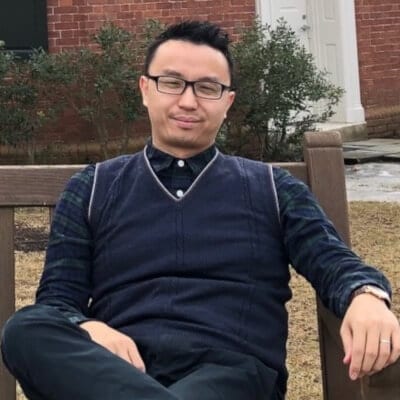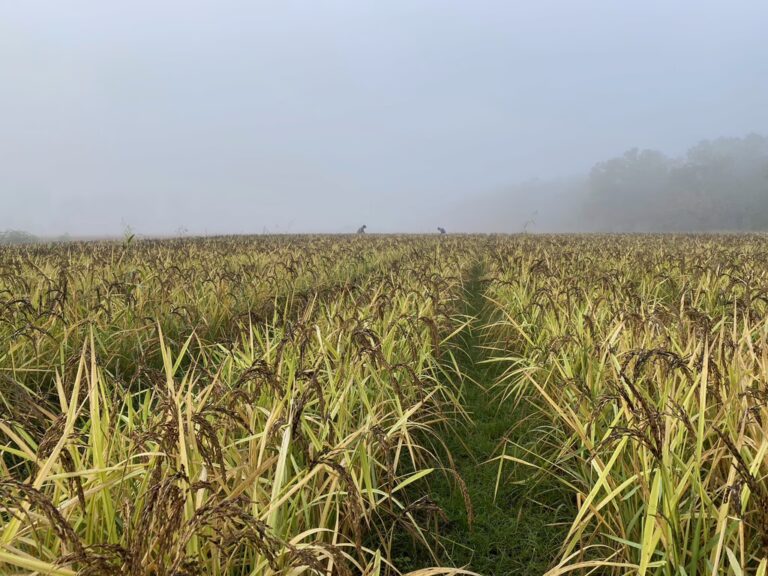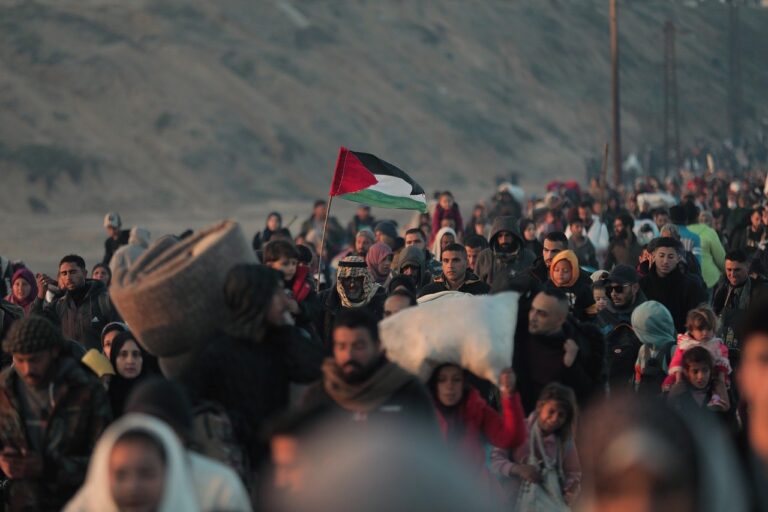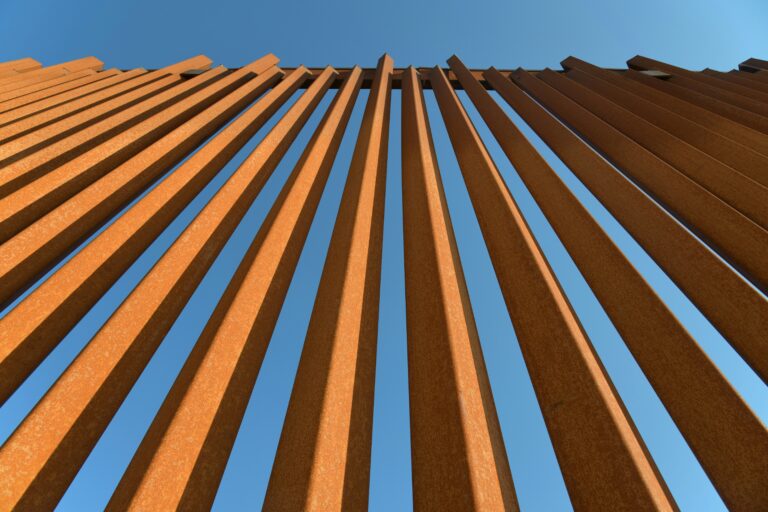A Chicana of Apache descent, Dr. Natalie Avalos is an assistant professor in the Department of Ethnic Studies and Affiliate Faculty in the Religious Studies and Women and Gender Studies Departments at the University of Colorado Boulder (CU Boulder). Her approach to research and teaching is informed by decolonial theory as well as critical ethnic studies and critical Indigenous studies frameworks.
Avalos received her doctorate from the University of California at Santa Barbara in Religious Studies with a special focus on Native American and Indigenous Religious Traditions and Tibetan Buddhism. She is a Ford Predoctoral Fellow, FTE Dissertation Fellow, and former CU Boulder Chancellor’s Postdoctoral Fellow. She is currently working on her manuscript, titled The Metaphysics of Decoloniality: Transnational Indigeneities and Religious Refusal.
Recently, Avalos spoke with us about her work, which ties together a Native, “land-based” ethic and earth-centered metaphysic with Buddhist thought, which she sees as a philosophical and moral ally to Indigenous people and traditions.
Buddhistdoor Global (BDG): How useful would an “interfaith” encounter or dialogue between Buddhists and Native traditions be, since these communities traditionally did not have a historical relationship?
Natalie Avalos (NA): I would say pretty useful actually. I have met a handful of Native folks who are practicing Buddhists and think about the relationship between Buddhist metaphysical views and Native ones, most often about how a Buddhist view of non-duality resonates with Native views of intersubjectivity. These resonances appear to be somewhat salient for those working on environmental wellbeing and stewardship as well. Since such views are shared by Indigenous and other land-based peoples around the globe, a conference on land-based ethics would provide a baseline for this line of thinking to develop into a network of support or even a strategy for concerted ecological justice. We are living in a moment of rapid ecological change and crises, so a critical mass around this issue would benefit us all.
The most ecological harm is actually perpetuated by private corporations and things like US militarism around the globe, so there is an urgent need for ideological change that can catalyze a critical mass agitating for ecological wellness.

The Mind & Life Institute held a summer research institute this year on “The Mind, the Human-Earth Connection, and the Climate Crises,” which was fantastic. It is a start but I would like to see a more comprehensive “interfaith” dialogue with Native and Buddhist activists and leaders invested in land stewardship. Part of what we are really contending with in the US is this perception that ecological justice can and should be pursued through increased sustainability focused on the everyday choices of individuals, such as driving a car versus riding a bike. While these individual choices are important and helpful, the problem we are facing is really structural. The most ecological harm is actually perpetuated by private corporations and things like US militarism around the globe, so there is an urgent need for ideological change that can catalyze a critical mass agitating for ecological wellness. This Mind & Life summer research is contributing to this necessary ideological shift, but future dialogues or conversations can and should focus on strategies for structural change.
BDG: Your article published last year, “Land-Based Ethics and Settler Solidarity in a Time of Corona and Revolution,” provides an excellent snapshot into our present moral, philosophical, and metaphysical crises. Can you share a bit on how the messages of Buddhism and Indigenous thinking could help the general populace as well as changemakers and leaders to reorient perspectives toward something more sustainable?
NA: A Buddhist relationship to the environment is not clear cut. Buddhist scholars like Ruben L. F. Habito have noted that questions of ecological protection are not explicitly outlined in early Buddhist texts and that they instead emphasize the goal of liberation from samsara and the earthly realm. While concern for the environment can be drawn from Mahayana texts that articulate a non-dual view, and thus frame the earthly realm as also empty of inherent existence and even potentially having Buddha nature, he notes that ecological crises is a contemporary issue that Buddhist ethics can—and should—address anyway. This notion has been articulated by Buddhist leaders like the Dalai Lama who have likened taking care of the earth to taking care of “our own house” and Thai Buddhist monk, Prayudh Payutto, who has explicitly critiqued environmental harm as a problem of hatred and greed but also ditthi, or views, namely that man is separate from nature.
While the Western industrialized world has appeared to have a neutral view on the natural world, it actually does not. The view that land is a resource for the taking, an object to be exploited for economic gain, is rooted in a secularized Christian “cosmo-logic” that understands Christians as having dominion over the earth. In this sense, Payutto is quite right to frame the ecological crisis as one exacerbated by a harmful view—one that has become so naturalized that it is perceived as somehow normative. The Buddhist ethics that would exhort us to care for the earth are often expressed in cultural contexts of the global majority where the land is not viewed as commodity in the same way it is in the industrialized world.
A Native American view of land is resonant with other Indigenous views in the Americas and beyond. These views rest on experiential engagement with the spiritual power that expresses itself in the natural world and is particular to place. In this sense, places act as a conduit for the spirit world, instructing the people on the protocols for living in it. These first instructions act as a covenant of sorts, an agreement between the people and the spiritual powers of these places. It is in this intersubjective experience of the greater world that peoples have come to understand themselves as an extension of land, as human expressions of the same primordial sentient force, and thus responsible to care for it as they care for others in their community.
In this sense, both strains of thinking would help us reorient ourselves to an intersubjective world, beyond a simple discourse of sustainability and instead rooted in deep relational care. Both can help us shift away from thinking of human life as somehow apart from the environment. Human life is an extension and expression of the natural world. If we take that view as our starting point then we can interrogate the obstacles to environmental stewardship, such as settler colonialism driven by racial capitalism and an objectifying ecology.
A Buddhist view would frame racial capitalism as an expression of not only ignorance, but also a hateful and greedy attachment to material goods. Hording wealth for one group at the expense of all others is an act of deep suffering. A Native view would emphasize our collective responsibility to care for our local communities, which include community members other than humans, such as rivers, mountains, plants, and animals. A Buddhist view would similarly support the care for all life, since it is our house and we are dependent on it for our survival.
Human life is an extension and expression of the natural world. If we take that view as our starting point then we can interrogate the obstacles to environmental stewardship, such as settler colonialism driven by racial capitalism and an objectifying ecology.
BDG: Since we first began this discussion, there has been a change in the US administration. Will the systemic problems facing Native Americans and Indigenous communities persist under Biden, or was there something uniquely problematic about Trump?
NA: Unfortunately, the same real-world problems of imperialism, violence, warmongering, and environmental destruction will continue under the Biden administration. The US is the most powerful and harmful imperial force in the world. Although its neoliberal government stages elections for the sake of democratic theater, a slightly more left leaning administration will only carry on these policies as they have continued to do for decades. Trump was unique in the sense that he openly fed the racist, realpolitik discourse of this imperial project. Past presidents have used nationalist discourse to support the ruse that imperial intervention and material extraction is intended to “stabilize” and democratize “developing” nations like Afghanistan. Americans and citizens of other settler states need to demand new forms of governance and rebuild them from the ground up.

We cannot vote away settler colonialism and we cannot continue to pretend that global capitalism is compatible with democratic nationhood for all nations. Global capitalism relies on racialization and the exploitation of the Global South, the world’s majority. We must keep this in mind going forward and understand them as harmful views.
BDG: What means do Buddhists have to lobby for transformative causes? Is it more along the lines of traditional protests/petitions/activism—such as the marches Bhikkhu Bodhi led against the pipeline from Canada to the US—or has the methodology grown more sophisticated?
NA: What a great question! There is no one perfect methodology. We need all of the above. Buddhists come from all walks of life. Depending on where one sits vis a vis power and privilege, they may be able to leverage this power towards ecological wellness in very different ways. The first major hurdle for many may just be to learn about the mechanism of power that contribute to ecological crises. This looks like: learning about the ways that settler colonial nations are deeply entrenched in and rely on the exploitation of Indigenous lands for their own monetary survival; learning about the way racialization functions to justify Indigenous dispossession and other forms of exploitation that continue to be directed at Black, Indigenous, Latinx, Arab, Asian, Pacific peoples around the world; learning about whiteness, approaches to anti-racism and understanding how these racial relations of power have become so naturalized that people often perceive them as static and inevitable.
Once these things are understood, we can pursue what many around the world have referred to as anti-colonial or even decolonial strategies that seek to dismantle and denaturalize these power dynamics and the structures they have created.
Decolonial action includes things like traditional protests, petitions, and activism, such as the beautiful leadership of Bhikkhu Bodhi, but also learning about and interrogating the ideologies that drive settler colonialism, racial capitalism, and Indigenous dispossession. In short, decolonization seeks to challenge the racialization and power operating in harmful ways around us. That could be in the workplace, in your sangha, in your family, even in your own heart. It also seeks to return Indigenous lands to Indigenous peoples and redistribute resources back to the global majority.
One of the most powerful strategies for building alternative expressions and structures of power is the spontaneous organizing that often happens in response to crises, such as the mutual aid networks that developed as the pandemic progressed. This kind of mutual aid only expanded in response to some of the major weather events we witnessed throughout the year, such as the loss of power in regions of Texas, due to a severe winter storm that compromised its ailing energy infrastructure. Ultimately, building these networks of support in addition to doing the internal and external work of decolonization will serve as the foundation for a better, more equitable world.
Decolonization seeks to challenge the racialization and power operating in harmful ways around us. That could be in the workplace, in your sangha, in your family, even in your own heart.
BDG: Aside from your overarching objectives, what projects are you presently working on?
NA: I am currently completing a manuscript provisionally titled Metaphysics of Decoloniality: Transnational Indigeneities and Religious Refusal. This book is based on ethnographic research I did with urban Indians and Tibetan refugees in New Mexico from 2012 to 2015—and really since. As a religious studies scholar, I was interested in how continued religious lifeways—and views—supported both communities in their efforts for self-determination and sovereignty in a diaspora or transnational context. I understand their refusal to give up their religious lifeways as a decolonial act that challenges a Western or settler metaphysic. I argue that their respective assertions of religious or land-based logics theorize forms of sovereignty rooted in interdependent relations of power among all persons, human and other-than human.
My next book project was going to be on the land-based ethics articulated by Indigenous stewardship movements. While I am still interested in doing more ethnographic research here, I am now shifting my focus a bit after attending a meditation retreat for and by Indigenous peoples at Spirit Rock in California earlier this month. The woman who led the retreat, Bonnie Duran—mixed race Opelousas/Coushatta descendent—is a long-time Dharma practitioner and public health scholar who is doing some really remarkable work in Indian country on mindfulness. I would like to chronicle this movement on Indigenous dharma and how other Black, Indigenous, and people of color are exploring decolonization through dharma as well.
BDG: What first got you interested into Indigenous and Buddhist intersections as an academic subject of research?
NA: Initially, both were personal interests. My Chicano/Apache father was a minister, and my Mexican mother was especially devoted to Christianity and later joined an evangelical church. I was genuinely interested in existential and religious questions about human purpose and the afterlife as a child, but part of my teenage rebellion was to explore non-Christian religious traditions. I loved reading about Taoism and Buddhism especially and began a Tibetan Buddhist practice in my twenties. Both my parents are mixed European and Indigenous, so they—and my grandparents—had complex, even somewhat mystical, understandings of the spiritual world.
Because these beliefs have no central texts and are learned experientially in more traditional contexts, I began to read about Native American and Indigenous beliefs in my teens as well. While attending college, I had an opportunity to study Buddhism, meditation, and mindfulness in various arenas and Native American and Indigenous philosophies.
Although I originally intended to just focus on Native American and Indigenous religious traditions in grad school, I was encouraged by some of my Buddhist studies colleagues to continue studying Buddhism more formally and so began taking classes in this area as well. In graduate school, I learned about the legacy of colonialism in the US in terms of racialization and historical trauma. I wondered how both may be impacting Tibetan refugee communities, since the kind of political and religious dispossession they are experiencing appeared to parallel the Native/Indigenous experience in the Americas. It was this question that led me to propose my project and think of Tibetans and more largely Tibet in settler colonial but also potentially decolonial terms. Although this project initially seemed a bit odd to my advisors, they were supportive of this approach overall.
This article was originally published on Buddhistdoor Global. It is reprinted here with permission.








